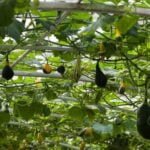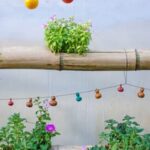Vegetable Garden Planting Season
The planting season for vegetables is typically in the springtime, when the weather is warm and the soil is moist. The best time to plant vegetables is when the soil temperature is at least 50 degrees Fahrenheit.
In order to plant vegetables in your garden, you will need to first prepare the soil. Remove any rocks or debris from the soil and then use a garden tiller to loosen the soil. Add some organic matter to the soil, such as compost or manure, and then mix it in.
Once the soil is prepared, you can start planting your vegetables. The best way to do this is to draw a map of your garden and plan out where each vegetable will be planted. Make sure to space the vegetables appropriately so that they have enough room to grow.
When planting vegetables, it is important to use the correct type of seed. Some vegetables, such as tomatoes, should be planted using a seedling, while other vegetables, such as carrots, can be planted using a seed. Be sure to read the instructions on the seed packet to determine how deep to plant the seed and how far apart to space the plants.
Once the vegetables are planted, it is important to water them regularly. The best way to water vegetables is to use a garden hose with a spray nozzle. Be sure to water the vegetables deeply, so that the water reaches the roots.
If you live in a cold climate, you will need to protect your vegetables from the cold weather. One way to do this is to use a row cover, which is a piece of fabric that is placed over the vegetables to keep them warm. You can also cover the vegetables with hay or straw to help keep them warm.
Deer Resistant Vegetable Garden Plants
If you are looking to create a deer resistant vegetable garden, there are a few plants you will want to consider. While there is no guarantee that deer will not eat these plants, they are less likely to do so than other plants in your garden.
One of the best plants to include in a deer resistant garden is garlic. Deer do not typically like the taste of garlic, so they are less likely to eat it. Other plants that deer tend to avoid include onions, tomatoes, and peppers.
If you are looking for plants that deer do like to eat, you will want to avoid planting those in your garden. Plants that deer love to eat include lettuce, carrots, and strawberries.
If you are unsure whether a particular plant is deer resistant or not, you can ask your local nursery or garden center for advice. They will likely be able to tell you which plants are most likely to be eaten by deer and which ones are not.
Arizona Vegetable Garden Planting Guide
Congratulations on your decision to plant a vegetable garden in Arizona! With a little bit of effort, you can produce your own fresh, delicious, and nutritious vegetables right in your backyard.
The best time to plant vegetables in Arizona is typically in the spring, when the weather is warm but not too hot. However, you can also plant vegetables in the fall, when the weather starts to cool down.
When planting vegetables, it’s important to choose a spot that receives plenty of sunlight. The garden should also be in an area that is easy to access, so you can easily water and harvest the vegetables.
If you’re not sure what vegetables to plant in your garden, consult this planting guide:
• Tomatoes: Plant tomatoes in a spot that receives plenty of sunlight. The soil should be well-drained and fertile.
• Peppers: Plant peppers in a spot that receives plenty of sunlight. The soil should be well-drained and fertile.
• Eggplants: Plant eggplants in a spot that receives plenty of sunlight. The soil should be well-drained and fertile.
• Beans: Plant beans in a spot that receives plenty of sunlight. The soil should be well-drained and fertile.
• Lettuce: Plant lettuce in a spot that receives plenty of sunlight. The soil should be well-drained and fertile.
• Carrots: Plant carrots in a spot that receives plenty of sunlight. The soil should be well-drained and fertile.
• Cucumbers: Plant cucumbers in a spot that receives plenty of sunlight. The soil should be well-drained and fertile.
• Zucchini: Plant zucchini in a spot that receives plenty of sunlight. The soil should be well-drained and fertile.
By following these simple tips, you can enjoy a bountiful and delicious vegetable garden all year long!
Best Time Of Year To Plant A Vegetable Garden
There is no wrong time to plant a vegetable garden, but there are some times that are better than others. The best time of year to plant a vegetable garden depends on where you live and what vegetables you want to grow.
In general, the best time to plant vegetables is when the soil is warm and there is plenty of moisture. This usually occurs in the spring and early summer in most parts of the country. If you want to plant vegetables in the fall, you will need to wait until the weather cools down and the soil becomes drier.
Here is a list of some vegetables that can be planted at different times of the year:
Spring:
Beets
Carrots
Lettuce
Onions
Peas
Spinach
Summer:
Beans
Corn
Cucumbers
Eggplant
Peppers
Tomatoes
Fall:
Brussels sprouts
Butternut squash
Kale
Pumpkins
Turnips
How Often Do You Water A Newly Planted Vegetable Garden
A vegetable garden should be watered frequently, especially during the early stages of growth. Vegetables need at least 1 inch of water per week to thrive. If the weather is hot and dry, you may need to water twice a week.
If you are not sure how often to water your vegetable garden, consider using a rain gauge to help you track the amount of rainfall your garden receives. If the garden does not receive at least 1 inch of rain per week, you will need to water it.
You can water your vegetable garden by hand or with a garden hose. If you are using a garden hose, be sure to use a sprinkler or spray nozzle to evenly distribute the water.
Watering your vegetable garden is an important part of keeping your plants healthy and productive. Be sure to water your garden regularly to ensure a bountiful harvest.

If you’re looking to get into vegetable gardening, or are just looking for some tips on how to make your current garden better, then you’ve come to the right place! My name is Ethel and I have been gardening for years. In this blog, I’m going to share with you some of my best tips on how to create a successful vegetable garden.





